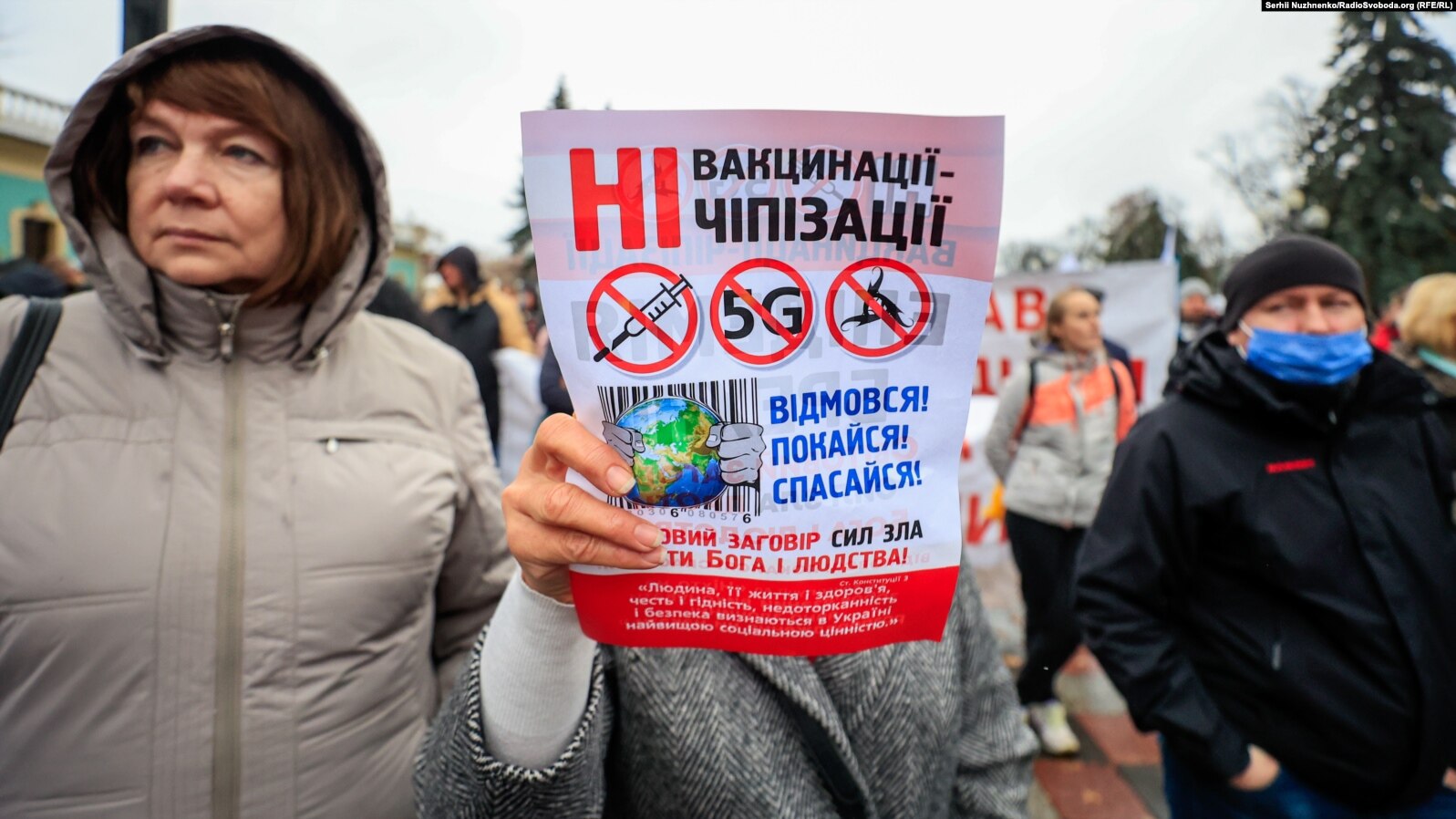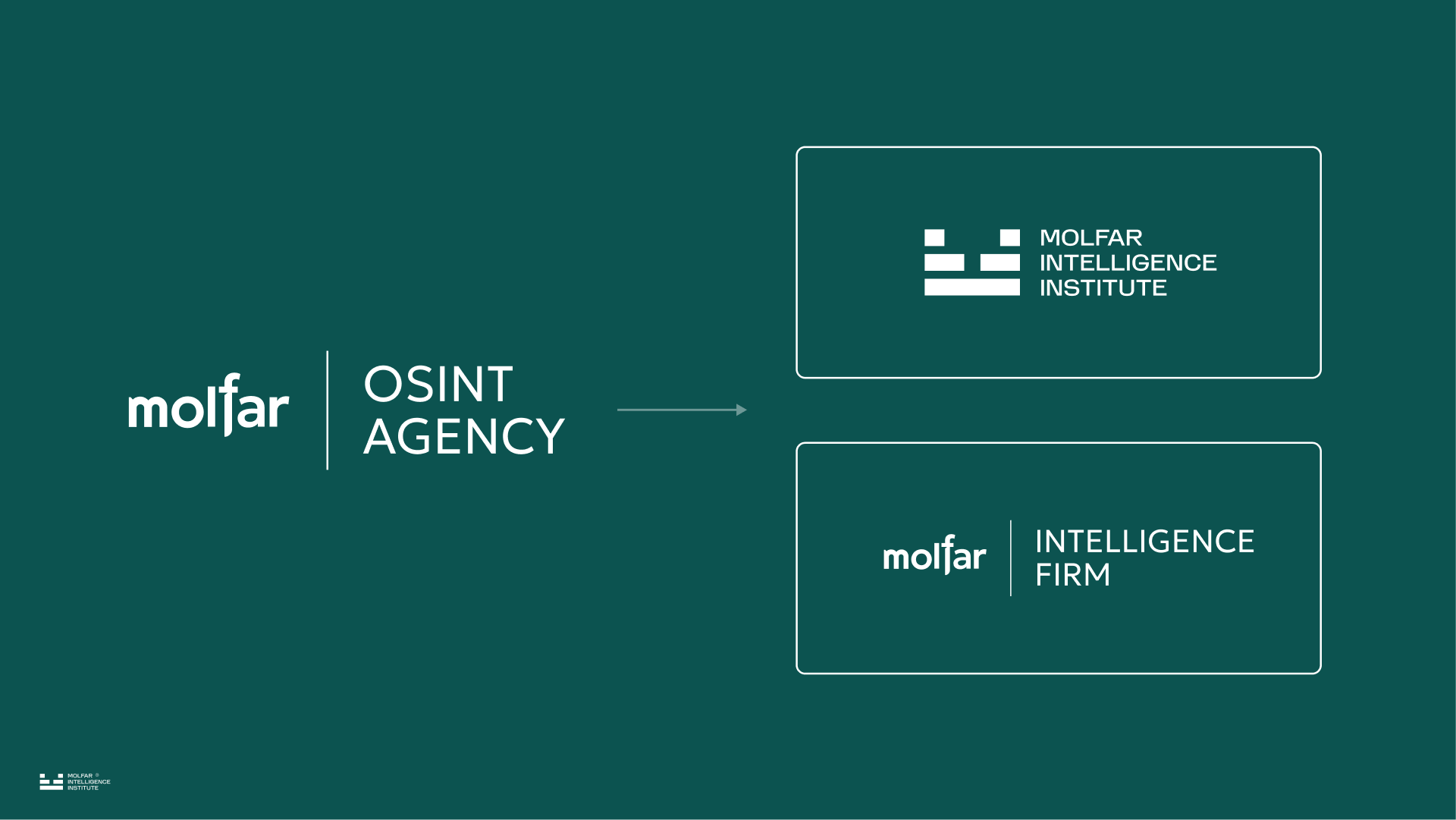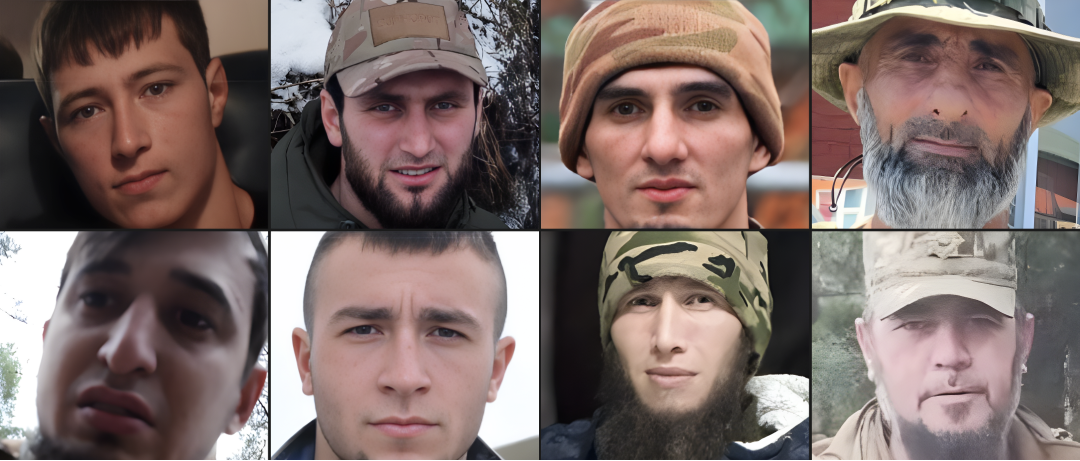A woman relieving herself right in the middle of a shopping center, attacks on military vehicles—these are the news items becoming a new trend. But what if someone is behind this? Someone spreading hoaxes about "international conspiracies" and "denouncing God" by declaring themselves as individuals. They call themselves "living people" and "citizens, not individuals." But who are they?
Could all this be part of a network that the Russians skillfully use for their purposes? This article will delve into complex conspiracy theories and fringe beliefs. Analysts from Molfar have investigated organizations whose members "fight against the TCK." Do they have connections to Russia?
Public Organization "Dosta": Activism or Lawbreaking?
In April 2024, in the Territorial Recruitment and Social Support Center (TRSSC) [in Ukrainian — ТЦК, — ред.] of Dunayivtsi, Khmelnytskyi region, a representative of the supposed public organization "Dosta Ukraine" relieved herself inside the facility, according to media reports. Subsequently, a video appeared on the Dosta organization's Facebook page, alleging that representatives of the TRSSC had "beaten the woman against the asphalt." The post added that the victim refused medical examination or hospitalization. Local police opened a criminal case for hooliganism in the Dunayivtsi TCK and Social Support premises.
The public organization "Dosta" actively publishes content on social networks. There are likely two Facebook pages associated with this organization: Dosta Ukraine, which has 8.5k followers, and Dosta, which has 9.2k followers. A person actively posting on Facebook introduces herself as Yulia M. She also actively posts videos on the YouTube channel "Dosta Pavlov Pavlo". We will tell you more about Pavlov later. For now, let's look at some publications from the channel.
In early October 2024, a video was published showing an activist of the public movement chasing a car. According to the video's author, her brother, whom the TCK representatives had kidnapped, was in the car. However, the video provided no evidence of this claim. The video ends with a car ride, with no continuation on the channel.
On May 23, 2024, a video was posted on the Facebook page of Dosta Ukraine claiming that "only fools check in at the TCK."
A video on the YouTube channel "Dosta Pavlo Pavlov" featured a likely representative of the Vinnytsia branch of the organization Dosta, commenting on the "strangeness" of COVID. According to her, people who did not end up in hospitals "struggled but recovered," whereas those who did were "less likely to come out." In the same video, the speaker claimed that the public organization "Dosta" fights against illegal actions by TCK and gas and electric companies.
In the same video, a Dosta activist stated that in her research on public administration, she "found no local government bodies" in Ukraine. The organization's Facebook page post claimed that "the TCK and all state bodies are illegal."
Based on all this, the organization "Dosta Ukraine" focuses on countering what it considers "state persecution" and "restriction of civil rights." Through active social media activities, it attempts to draw public attention. However, it is worth looking at those who confirm their affiliation with this public organization.
NGO "Dosta": Leader imprisoned for a fatal car accident, his likely deputy accused of raping a woman
The YouTube channel "Dosta Pavlo Pavlov" has 66k subscribers. As of this article, approximately 1400 videos had been posted on the channel.
Pavlo Pavlov in May 2024. Photo source: zaxid.net
Pavlo Pavlov is likely the founder of the NGO "Dosta." Some media wrote about his connections with the criminal underworld of Zakarpattia. In March 2021, he was sentenced to six years in prison for his involvement in a fatal car accident in Uzhhorod. According to media reports, the accident occurred on December 5, 2017, when Pavlov hit a 59-year-old resident of Uzhhorod at a pedestrian crossing and fled the scene. Some reports suggest that Pavlov was later found in the Kyiv region, where he was already in custody for another crime—illegal handling of ammunition.
According to media sources, Pavlov's likely deputy, Ivan Bovkun, was arrested in March 2022 on extortion charges. Before that, in 2009, Bovkun, while under the influence of alcohol, allegedly beat and raped a woman in the city of Khust, as reported by the media.
On the left is Ivan Bovkun, likely the deputy head of the NGO "Dosta Ukraine." Photo source:www.0312.ua
Similar organizations. Ostap Stakhiv. "Living People." Journalists from Stremousov
In addition to "Dosta," other public organizations in Ukraine share similar directions and ideologies.
For example, theNGO "Samovryadna Hromada" (Self-Governing Community) has an article on its website claiming that the current state bodies are "illegitimate and illegal." Another article states that the state fiscal service "has no right to tax people."
Supporters of the "Living People" (Ukrainian: живі люди) movement strive to discard the term "physical person." Various activists often declare, "I am a living person." Ostap Stakhiv, who frequently spoke at anti-vaccination rallies in Lviv, also used this term. Still, his public rhetoric and activities have sparked discussions among the public. Given Ostap's anti-vaccination stance, his activism should be scrutinized.
According to unconfirmed reports, Ostap Stakhiv may have connections with Russia and personally met with collaborator Kirill Stremousov.
In 2021, the Security Service of Ukraine (SBU) suspected Stakhiv of plans to "overthrow the constitutional order." According to the SBU, they blocked the destructive activities of an anti-Ukrainian network that tried to destabilize the socio-political situation in the country under the guise of anti-vaccination slogans. The SBU asserts that Russians coordinated their actions.
Additionally, according to the publication Zahid.net, among Stakhiv's associates are Viktor Vikrachuk (a deputy of the "Opposition Platform For Life" party), Oleksandr Nadiozh (a pro-Russian anti-vaccinator), and Nadiia Savchenko (a former deputy accused by some lawmakers of treason).
Journalists who analyzed the speeches of Ostap Stakhiv's allies noted that some coordinators of the anti-vaccination movement also use the phrase "we are living people" who "carry the word of God."
On October 2, 2024, Ostap Stakhiv was arrested by a decision of the Lviv Court.
Where Do Pseudo-Activists Operate in Ukraine?
During their research, analysts from Molfar discovered that organizations and groups similar to "Dosta Ukraine," "Living People," and "Sovereigns" operate in many regions of Ukraine. Below, we provide a map indicating the list and locations of representatives of these organizations who demonstrate their allegiance and publicly confirm their affiliation with them.
Molfar analysts have examined individuals affiliated with organizations such as "Living People," "Dosta Ukraine," "The Title Sovereign People of Ukraine," the so-called "OMS Pryiutivska Village Council of Oleksandriysky District," and others. Over 30 organizations have an estimated 374 members. It has been found that 54 individuals have connections to Russia through social networks, close relatives in Russia, and subscriptions to propagandist public groups on the Russian social network VK.
UPDATE:
We clarify that most of these “organizations”* are informal associations of citizens. Participants identify their affiliation with such movements, united by specific ideas rather than legal frameworks.
*The term “organizations” is used in this article to refer to “groups of people” that are not necessarily legally organized.
In informal organizations, membership does not have legal boundaries like those of officially registered public organizations. This means that participants can unite based on shared ideas and values but do not possess formal documents or registrations to confirm their membership. In Ukraine, people can form informal organizations without requiring official registration. The fundamental provisions regarding the right to associate are enshrined in the Constitution of Ukraine and the Laws of Ukraine.
Article 36 of the Ukrainian Constitution and the Law on Citizen Associations govern the activities of such organizations.
Members of officially registered public organizations can confirm their membership in various ways. For example, internal documents or regulations of the registered formal organization may contain information about membership and the rights of representatives. Many organizations also issue membership cards or certificates that confirm a member's status.
Here are the names of these informal organizations and movements, whose members were identified during the investigation and which have certain connections to the Russian Federation. Most of these movements refuse to acknowledge Ukraine's laws and its existence as a state, so they do not register any legal entities.
Living People | No legal entity identified | 12 |
So-Called Territorial Communities | Only structures belonging to official local government bodies were identified. | 8 |
“Peoples Power”* (Ukrainian — народовладдя) | No legal entity with this name exists. This informal movement is not connected to the political party “Peoples Power”. There is also a public organization, "PEOPLE'S POWER OF UKRAINE," which is also not associated with the informal movement "Popular Power." | 5 |
I am a Human | No legal entity identified. There is a legal entity "I Am a Human," which is not related to the informal movement. | 5 |
Direct Peoples Power | No legal entity identified. Page on FB. | 5 |
Citizenship of the USSR | No legal entity identified | 3 |
Supporters of the Idea of "Restoration of the USSR within the USSR" | No legal entity identified | 3 |
Kin Community of the Lineage | No legal entity identified | 2 |
People's Journalist* | Probably — public Organization People's Journalist | 2 |
Human Rights | Probably — Public Organization "Association of Human Rights Defenders of Ukraine" | 2 |
Initiative Group of the Ukrainian People of the Independent Ukrainian State – Kyiv Rus | No legal entity identified | 1 |
All-Ukrainian Sovereign Interregional Trade Union | No legal entity identified | 1 |
Movement "Breath of Life" | No legal entity identified | 1 |
Public Organization "Freedom in Law" | No active public organization exists. Informal movement. | 1 |
So-Called National Company "Energoresurs – Ukraine" | No legal entity identified | 1 |
"Communist Party of the Soviet Union (Bolshevik Platform)" | No legal entity identified | 1 |
| TOTAL | 53 |
*We note that we do not specify these movements' ownership forms anywhere, nor do we state that they belong to public organizations or political parties.
Connections to Russia and Pro-Kremlin Beliefs
"Living People" or "Sovereigns" has been a community in Russia since 2017. Supporters advocate for renouncing documents that verify identity and oppose the term "physical person," claiming it essentially reduces them to a "slave" status. Various videos on social networks show "activists" from the movement clashing with Russian authorities.
Anton Bulgakov, referred to as the leader of the "Living People" sect, is currently in a Russian prison. Photo source: Russian media.
During the peak of the 2020-2021 pandemic, the "Living People" ideology first appeared in Ukraine. This ideology has since transformed. Its participants assert that by having the status of a "living person—sovereign," they are supposedly exempt from receiving draft notices and serving in the Ukrainian Armed Forces. Although lawyers have debunked the "Living People" ideas, even under videos with reasoned rebuttals, one can find angry comments from supporters of the "Living People" ideology.
Several comments under the video where a lawyer debunks the main claims of the "Living People."
How do these organizations threaten national security?
In addition to spreading disinformation and aligning with Russian propaganda, fringe groups like the "Sovereign Citizen" movement or "Living People" pose a threat to national security through so-called paper terrorism. This practice involves sending baseless lawsuits, fake obligations, petitions and requests that overwhelm the judicial system and government institutions.
An example of a statement by the Sovereigns to state authorities is Source:The Access to Truth website — a unified platform for sending electronic requests to information holders by the Law On Access to Public Information.
In this screenshot, we see one of the examples of so-called "paper terrorism." Individual statements like these may seem laughable, but their mass proliferation can slow down or even paralyze the work of state institutions.
According to a UNDP report, 741 questionnaires from 412 state and local authorities in Ukraine were analyzed. These questionnaires provided anonymous information about actions by individuals who may have abused the right to access information. The monitoring covered two periods: the entire year of 2023 and from January to April 2024.
The questionnaire results revealed that 237 authorities reported potential abuses of the right to access information by certain individuals.
Thus, according to officials, most appeals to state bodies show signs of abuse of the right to access information. Fake appeals and abuses are a waste of time and public funds.
The results of the UNDP survey indicate that, on average, an employee of a state body spends 9 hours processing a single request, while local government employees spend 5.5 hours. All of them state that the time spent on processing a single request by an individual abusing their right varies and depends on the complexity of the request, ranging from several hours to several weeks.
Based on this, the cost of processing requests with signs of abuse in Ukraine in 2023 amounted to 46,779,083 hryvnias.
Government Body | Year | Number of Appeals Containing Signs of Abuse | Average Time Spent on Processing Appeals in Hours | Number of Working Days Spent on Processing Appeals* | Number of Working Months Spent on Processing Appeals** | Expenses for Processing Appeals in National Currency (UAH) |
OMC | 2023 | 5835 | 5.5 | 4011.6 | 191 | UAH 2,733,299 |
Jan-Apr 2024 | 3246 | 2231.6 | 106.3 | UAH 1,520,529 | ||
ODV | 2023 | 37919 | 9 | 42658.9 | 2031.4 | UAH 29,065,848 |
Jan-Apr 2024 | 17559 | 19753.9 | 940.7 | UAH 13,459,406 |
General calculation of budget expenditures on processing appeals with signs of abuse:
*Based on an eight-hour workday.
**Based on a month, which on average consists of 21 working days, taking weekends into account.
OMC — local government bodies
ODV — state government bodies
According to the UNDP study, in some cases, officials mistakenly consider situations where a person submits multiple appeals or requests as abuse. However, this is only sometimes the case, as active citizens, investigative journalists, or those simply trying to solve their problems often submit many requests. As UNDP notes, attention should be focused not on the number of requests but on the substance of the issues being raised.
Foreign Experience
UK law allows authorities to refuse requests that are too burdensome or repetitive.For instance, authorities may deny a request if it requires significant effort or costs exceeding a set threshold or is considered irritating.
In Sweden, access to information laws restrict access to documents when necessary to protect national security, personal or financial data, or to ensure the efficiency of government bodies. According to Sweden's Freedom of the Press Act and the right to access documents, government bodies may deny requests if they are too vague or require excessive processing resources.
In France, the law ensures public access to administrative documents held by public and private entities performing public functions. Exceptions exist to protect national security, the confidentiality of personal data, and sensitive matters that could be dangerous to disclose.
The Federal Freedom of Information Act (IFG) has been in effect in Germany since January 1, 2006. The law guarantees citizens the right to access official information from federal government bodies. The law also contains several exceptions and restrictions, including the possibility of denying a request if it requires disproportionate effort to process.
In various US states, different laws permit the dismissal of frivolous lawsuits and protect officials from harassment. For example, in Indiana, all claims that do not lead to legal action within 30 days are invalidated. In Florida and some other states, similar legislation allows for prosecuting individuals who encourage the submission of false financial documents.
It is worth noting that the ideas promoted by movements like "Sovereigns," "Living People," and similar groups contradict the principles of the social contract. These movements often deny the legitimacy of governments and their laws. Members claim they are not subject to the jurisdiction of states and can independently decide which laws to follow and which to ignore. This creates several issues:
- Conflict with authorities: Their actions can lead to confrontations with law enforcement, sometimes ending in violence.
- Paper terrorism: As mentioned above, they abuse the bureaucratic system.
- Refusal to comply with laws: They typically refuse to pay taxes, recognize the judicial system, or comply with government decisions, undermining equality before the law and collective responsibility for state actions.
- Attempts to create parallel institutions: They may attempt to establish their own "governments" or "courts," which they consider legitimate, undermining the unity of the legal system and threatening overall stability.
The last point is hazardous for Ukraine, especially during wartime, when the state requires maximum consolidation and efficiency. Parallel institutions can create internal conflicts and cast doubt on the legitimacy of the official government.
In May 2024, five individuals were detained in Zaporizhzhia for actively attempting to disrupt mobilization efforts. According to media reports, these individuals identified themselves as Living People, a standard narrative among Sovereign Citizens who deny the legitimacy of state institutions. They also actively spread false content online. The videos and posts they circulated distorted the actions of military personnel, attempting to incite public outrage over mobilization efforts.
On September 20, the Office of the Prosecutor General reported 266 instances of vehicle arson targeting military personnel and volunteers. According to the headof the National Police, Ivan Vyhovskyi, these were actions orchestrated by the Russian FSB, which recruited Ukrainian youth. There are grounds to believe that organizations and individuals obstructing the work of the TCK and creating hurdles for government bodies are indirectly connected to Russian intelligence services. This hypothesis is further supported by the fact that 15% of the 374 members of the analyzed organizations have ties to Russia.
Currently, Ukraine lacks a law that allows dismissing "fake" appeals to government institutions. Meanwhile, according to a UNDP survey, 57% of appeals are considered questionable by Ukrainian officials. Processing such appeals costs the government at least 46 million UAH.




